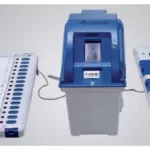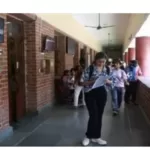New Delhi: The prestigious Jawaharlal Nehru University (JNU) is grappling with significant academic funding reductions, administrative challenges, stalled promotions for educators, and controversial faculty reappointments, according to allegations made by teachers.
The Jawaharlal Nehru University Teachers’ Association (JNUTA) has published a report titled “JNU: The State of the University,” outlining these concerns. The report highlights a 57.8% reduction in funding for JNU in 2021-22 compared to 2015-16. Key points from the report include:
– Laboratory running expenses decreased by 88.7%
– Funds for fieldwork and conference participation reduced by 92.2%
– Seminars’ funds reduced by 79%
– Scholarships experienced a 23.7% decrease
– Total academic expenses suffered a 57.8% cut
The JNUTA report emphasizes that much of JNU’s infrastructure is deteriorating, with insufficient funds allocated for routine maintenance.
Multiple Academic Calendars:The report further reveals that JNU is currently operating under three distinct academic calendars due to the introduction of the Common University Entrance Test (CUET) and the involvement of the National Testing Agency (NTA). This has led to administrative chaos, as the report suggests there is no legal compulsion for JNU to adopt the CUET system.
The JNU academic calendar is now effectively determined by the NTA, which manages CUET admissions and conducts PhD entrance examinations.
Fewer Executive Council Meetings: Allegations have arisen that JNU has been holding fewer Executive Council (EC) meetings than required by university regulations. The report states that, since February 2022, only four regular EC meetings have been held, fewer than the required number.
The report also claims that EC decisions from previous meetings have been altered in subsequent reports, and audit reports have not been shared with EC members.
Delayed Promotions: Several faculty promotions are allegedly being delayed arbitrarily. The administration is accused of repeatedly appointing the same teachers to the same positions, ignoring more senior candidates. According to the report, this has led to over 100 serving professors who have not previously served as deans being bypassed in recent appointments.
The JNUTA report suggests that statutory norms of the university have been flouted, Centres’ roles in faculty recruitment have been undermined, and a disproportionately large number of vacancies exist in reserved seats, with 76 reserved seats currently vacant, according to a statement by the education ministry in Parliament.







